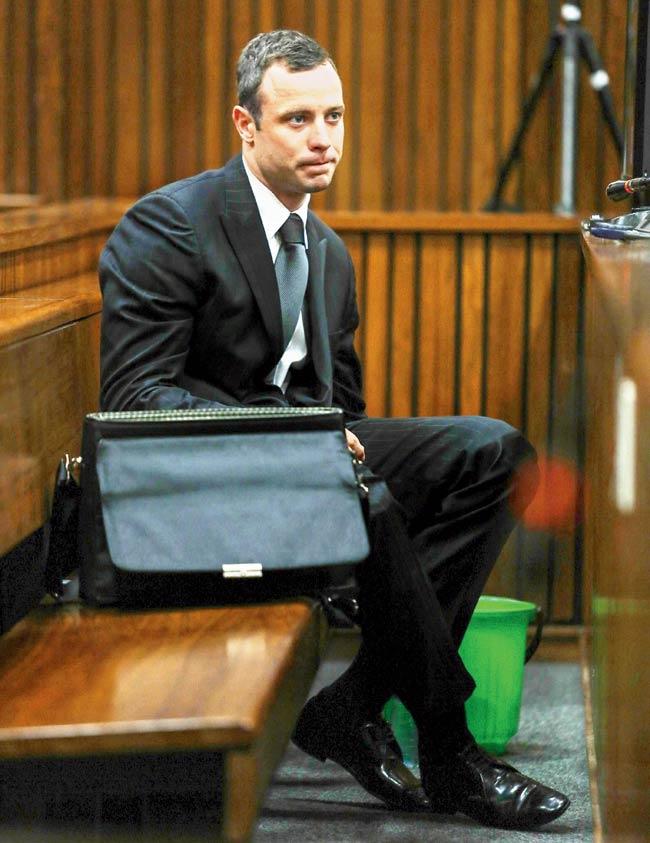Here are some of the questions that could determine the fate of Olympic track star Oscar Pistorius' fate in the trial for the murder of his girlfriend Reeva Steenkamp

Johannesburg: Olympic track star Oscar Pistorius returns to court on Thursday for judgement in his murder trial. He is accused of killing his girlfriend Reeva Steenkamp on Valentine's Day of 2013. The double-amputee sprinter is also facing charges of gun and ammunition possession.

Oscar Pistorius
Here are the key questions that might determine his fate:
Who decides Pistorius's innocence or guilt?
South Africa does not have jury trials, so the verdict will largely come down to Judge Thokozile Masipa. However in this case the judge has been given two "assessors", Themba Mazibuko and Janet Henzen-du Toit, as aides. If the pair both disagree with Masipa's decision they could choose to overrule her on matters of fact.
Did the trial produce any 'smoking gun'?
Not really. Both defence and prosecution were arguably more effective when dismantling their opponent's case than building their own. But while in the dock, Pistorius appeared to change his defence, from saying he shot at Steenkamp through a locked door in self-defence thinking she was an intruder, to saying he fired "accidently". Masipa and her colleagues will have to assess reams of evidence from dozens of witnesses, but ultimately it may all come down to just one person's testimony.
"It would largely come down to what she thinks of Oscar's testimony, and how good he was as a witness," said lawyer David Dadic, adding that the change of defence "would hurt him".
Evidence related to previous gun charges against Pistorius could also prove important. "His character was brought down because of those lesser charges," said Dadic.
Can Pistorius avoid conviction?
Pistorius has admitted he killed Reeva Steenkamp, but the judge's understanding of his motive and mind-set will decide if that is viewed as a criminal act. To find him guilty of murder, the state must have proved there was a direct intention to kill.
"He could also be found guilty of culpable homicide, if the court finds that there was an indirect intent to kill," said Dadic. "The judge would find it hard not to find him guilty of anything."
Pistorius's lawyers tried to argue that his disability bred a sense of insecurity that made him shoot wildly at a perceived intruder. But Dadic said "to acquit him based on his disability would set a bad precedent."
Will he go to jail?
If found guilty the judge will prescribe a suitable sentence based on the evidence and mitigating factors put forward by the defence. "There is no prescribed sentence, unless he is found guilty of premeditated murder which carries a 25 year term," said Dadic. "For culpable homicide he might get anything from a suspended sentence to a jail term."
Will he appeal if found guilty?
Almost certainly, yes, according to sources familiar with the case. "The trial is the first leg of a multi-legged legal process. It's just the beginning," said Dadic. "If he gets a jail term on any of the charges he can appeal. The appeal process can take years.
"I don't believe Oscar will go to jail until he has exhausted all the legal avenues available to him, including the possibility of going to the constitutional court."
 Subscribe today by clicking the link and stay updated with the latest news!" Click here!
Subscribe today by clicking the link and stay updated with the latest news!" Click here!









